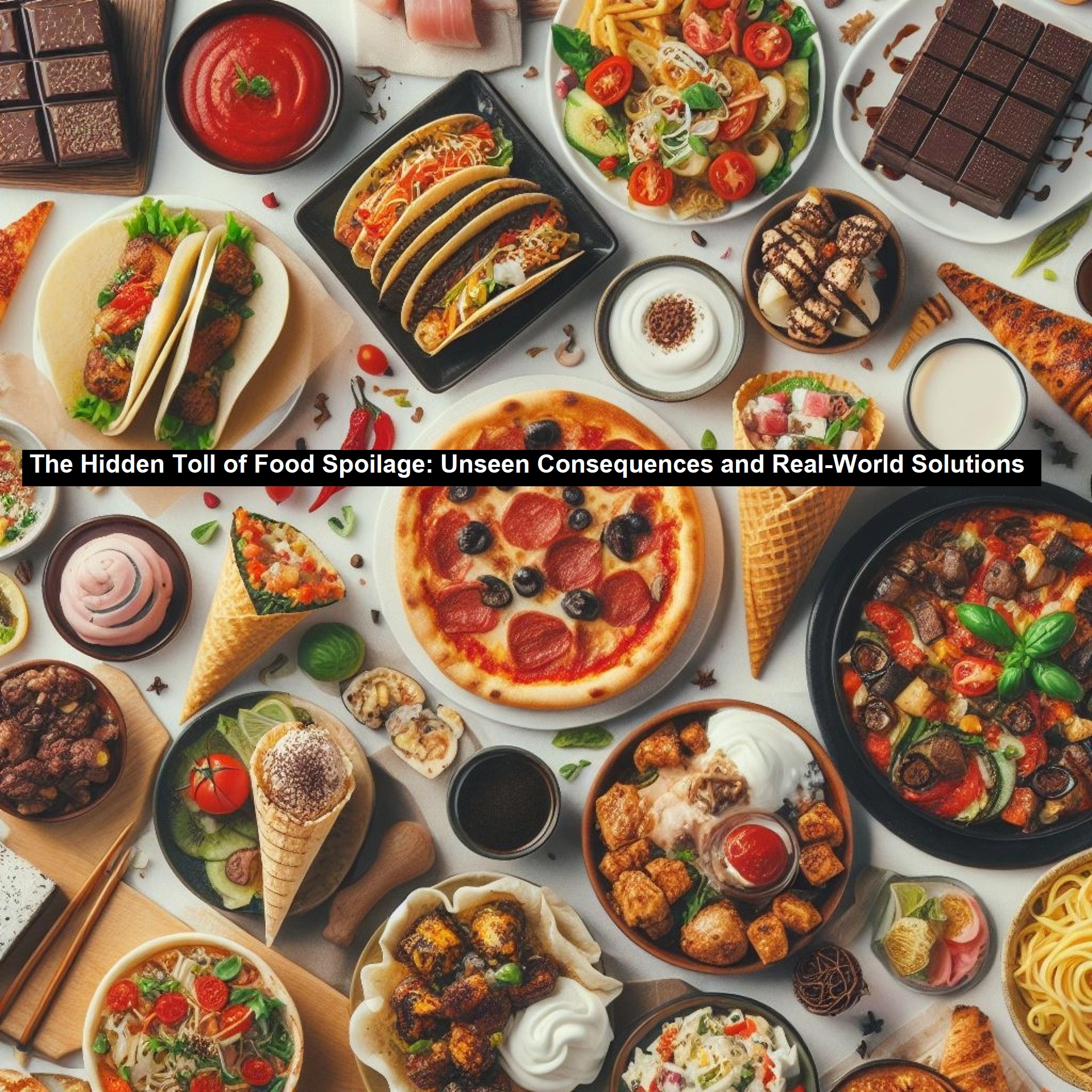Food spoilage is an often invisible but deeply impactful issue that transcends kitchens, grocery stores, and distribution centers. It’s not simply about the disappointment of throwing away moldy bread or wilted lettuce. Globally, nearly one-third of all food produced—approximately 1.3 billion tons—is lost or wasted each year, resulting in economic losses exceeding $1 trillion. But the cost of food spoilage reaches far beyond lost dollars. It undermines food security, damages ecosystems, contributes to climate change, and burdens healthcare systems.
Economic Disruption Across the Supply Chain
Food spoilage inflicts financial damage at every link in the food supply chain. Farmers see their hard work go to waste when crops rot before they can be harvested or shipped. Transportation companies absorb losses when temperature-sensitive goods degrade in transit. Retailers suffer when expired items must be discarded, and consumers ultimately pay higher prices to offset these cumulative losses. Spoilage-related inefficiencies inflate operational costs and introduce volatility into markets, especially in low-income regions where margins are slim and food accessibility is already a challenge.
For small-scale producers and regional grocers, the impact can be even more pronounced. Lost inventory often translates into thinner profit margins or even business failure. These economic effects ripple through local economies, weakening employment and reducing access to affordable, fresh food.
Read: Credit Repair Secrets from Grapevine, TX’s Leading Experts
Environmental Consequences of Wasted Food
When food ends up in landfills, it doesn’t just waste calories—it wastes all the resources that went into producing it. Globally, agriculture uses 70% of the world’s freshwater and accounts for a significant portion of greenhouse gas emissions. When food spoils, so too do the water, labor, energy, fertilizers, and land resources used in its production.
Moreover, the environmental toll of discarded food continues even after disposal. As it decomposes in landfills, organic waste releases methane—a greenhouse gas with more than 25 times the heat-trapping potential of carbon dioxide. Food waste alone is responsible for roughly 8–10% of global greenhouse gas emissions, making it a critical, yet often overlooked, contributor to climate change.
Public Health Risks and Hidden Hazards
Spoiled food isn’t just a financial and environmental issue—it’s a public health concern. Improperly stored or transported food is fertile ground for bacteria like Salmonella, Listeria, and E. coli. These pathogens can cause serious, sometimes fatal, foodborne illnesses. In developing nations, where access to refrigeration and healthcare may be limited, the health risks are even more pronounced.
In industrialized countries, healthcare systems bear the burden of treating these preventable conditions, resulting in billions of dollars spent annually on hospitalizations, medical treatments, and lost productivity.
The Game-Changing Role of Packaging Innovation
Packaging plays a pivotal role in reducing food spoilage, yet it’s frequently overlooked in broader food waste discussions. Traditional materials, such as wax-coated cardboard, have long been used in produce shipping, but they are prone to breaking down in high-humidity, cold-chain environments. This leads to structural failure, resulting in bruised or crushed food that is subsequently rejected at delivery points.
Enter corrugated plastic packaging, an innovative solution designed to withstand the rigors of modern food logistics. Made from polypropylene or similar polymers, these durable containers maintain their integrity throughout the cooling and transportation process. Unlike wax cartons, which degrade and collapse under cold or moist conditions, corrugated plastic boxes remain structurally sound—protecting the contents and ensuring that high-quality products reach consumers intact.
Furthermore, many of these plastic packaging options incorporate design features such as ventilation slots, which support optimal airflow. This helps maintain consistent temperatures, reduces condensation, and extends the shelf life of perishable goods. The use of such packaging dramatically reduces the rate of product rejection and minimizes the need for return logistics—cutting down on fuel usage, carbon emissions, and wasted man-hours.
Broader Strategies to Combat Spoilage
While packaging is a critical component, tackling food spoilage requires a multi-faceted approach. Investment in cold storage infrastructure, particularly in emerging markets, is essential for maintaining the freshness of perishable goods. Enhanced training in food handling and inventory management can reduce spoilage at both the retail and consumer levels.
Technological innovations are also stepping in to play a key role. Real-time monitoring systems using IoT sensors can track temperature, humidity, and location, alerting handlers to conditions that may lead to spoilage before it’s too late. These insights help optimize routing, ensure proper refrigeration, and improve traceability throughout the supply chain.
Consumer education is another powerful tool. Teaching people how to store food properly, read expiration labels critically, and embrace “imperfect” produce can significantly reduce household-level waste. Meanwhile, food redistribution programs that connect surplus food with food banks or shelters help feed the hungry while diverting waste from landfills.
A Global Imperative for Collective Action
Addressing food spoilage is not just an industry challenge—it’s a societal one. From manufacturers and retailers to policymakers and consumers, every stakeholder has a role to play. By embracing smarter technologies, sustainable packaging solutions, and cross-sector collaboration, we can drastically cut waste, improve food security, and reduce our ecological footprint.
Ultimately, the hidden toll of food spoilage demands visibility. Recognizing its full range of impacts is the first step toward building a more resilient, efficient, and equitable global food system.
Hidden-Toll-of-Food-Spoilage


